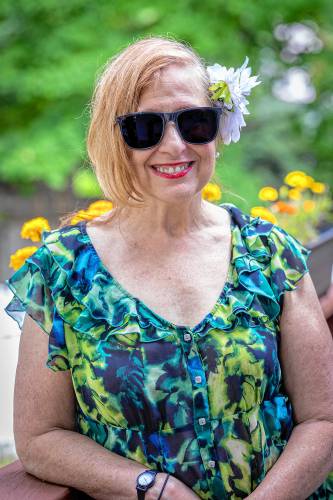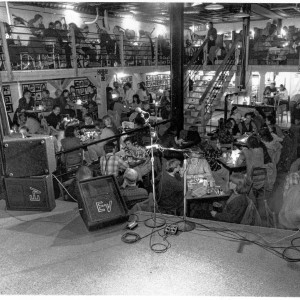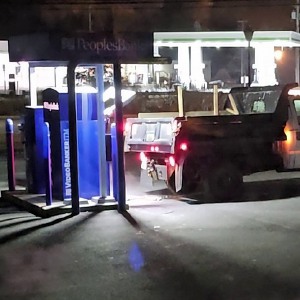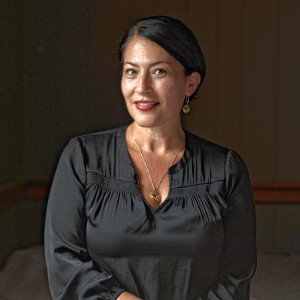Only Human with Joan Axelrod-Contrada: To journal or not to journal: Advice for when journaling feels like it’s holding you back

Joan Axelrod-Contrada CONTRIBUTED
| Published: 04-12-2024 8:43 AM |
Anyone who’s ever kept a journal can relate to the song “Dear Diary” by the Moody Blues.
The tune came out in 1969 at the height of my adolescent angst. I poured my misery into a pocket-sized pink diary with a lock to keep away prying eyes. Like the narrator in “Dear Diary,” I often felt out of sync with the world around me. The song ends with someone exploding an H-bomb.
Hearing “Dear Diary” again as an adult, I’m still not sure what to make of the character’s relationship with his diary. While some of the lyrics describe a friendly sort of connection, others reflect a kind of blasé melancholy. Indeed, the Moody Blues wrote the kind of lush, experimental songs that often left me with more questions than answers.
Journaling, too, can be a puzzling endeavor. After the death of my husband, I read countless books and articles that made expressive writing sound like the magic recipe for healing. Sprinkle some on for 15 minutes a day. Voila! Reduced anxiety and depression. Boosted immunity. And, best of all, it’s free.
Perched at my laptop, I’d dashed off one woe-is-me entry after another in the hopes of some sort of exorcism. It never came. Instead, I felt like I was picking at a scab, with the wound of grief just getting deeper and deeper. Talk about adding insult to injury! I wanted to slap a billboard-sized disclaimer on all those promises of healing.
Granted, some researchers do, indeed, acknowledge that journaling can make people feel worse rather than better — at first, anyway. Research, though, says they benefit in the long run. Perhaps I, too, would have reaped the rewards if I had continued down the same path. However, something told me that I needed to shift directions or give up altogether.
Just as I was wrestling with this dilemma, I got an email from author TziviaGover announcing a new writing workshop on keeping a notebook. Serendipity shined its face on me, so I signed right up.
Tzivia began the workshop by comparing journals to romantic relationships, saying that both sometimes got stale. Yup, I knew all about that. She suggested writing about what we’d want to keep from the day.
Article continues after...
Yesterday's Most Read Articles
 The Iron Horse rides again: The storied Northampton club will reopen at last, May 15
The Iron Horse rides again: The storied Northampton club will reopen at last, May 15
 Homeless camp in Northampton ordered to disperse
Homeless camp in Northampton ordered to disperse
 Authorities ID victim in Greenfield slaying
Authorities ID victim in Greenfield slaying
 $100,000 theft: Granby Police seek help in ID’ing 3 who used dump truck to steal cash from ATM
$100,000 theft: Granby Police seek help in ID’ing 3 who used dump truck to steal cash from ATM
 UMass football: Spring Game closes one chapter for Minutemen, 2024 season fast approaching
UMass football: Spring Game closes one chapter for Minutemen, 2024 season fast approaching
 Final pick for Amherst regional superintendent, from Virgin Islands, aims to ‘lead with love’
Final pick for Amherst regional superintendent, from Virgin Islands, aims to ‘lead with love’
A lightbulb went off in my head. No, I didn’t want to hold on to all those mopey moments of missing Fred. Nor did I want to just write about sugar and spice and everything nice. The instructor offered another helpful tip, encouraging us to tune into our five senses.
With my journaling off to a fresh new start, I got an extra boost from an article in Medium by Amy Hartsough titled ”Journaling Can Make You Feel Worse If You Do It Wrong: Here’s How to Do It Right.” She describes how her journal had become a place to vent. Once she realized this was just dragging her down, she experimented with new ways of journaling.
She made a point of looking for solutions to her challenges. For example, after writing about feeling overwhelmed, she realized she didn’t have to do everything that day. She was in control of her schedule. She could focus on one task at a time.
Even if you don’t keep a journal, you can use this technique to get yourself out of the rut of rumination. We can all interrupt those endless loops in our head that lead to nowhere.
Some journaling notebooks are set up specifically to express gratitude. While we’re all grateful for friends and family, writing the same general sentiment can get boring after a while. To add spice, I try to write about what those loved ones do that tickles my fancy. Snatches of conversation. Culinary delights. Unexpected gifts. The more vivid and specific, the better.
We can even be thankful for the words that swirl all around us. In “Writing that Gets Noticed,” Estelle Erasmus describes the practice of keeping a “word bank” for depositing and withdrawing bite-sized bits of language.
In “Dear Diary,” the narrator juxtaposes mundane details about his own life with mention of the H-bomb. He’s searching for a more enlightened, peaceful, and meaningful life. Perhaps it’s the search, itself, that makes for the best journaling. After all, questing is more interesting than naval-gazing. That’s my experience, anyway.
Resources abound for anyone interested in starting, restarting, or spicing up a journal. In order to write about your life, you might find yourself waking up, observing what you once overlooked, living more fully. Who knows? You might just be the next Virginia Woolf or Ralph Waldo Emerson.
Joan Axelrod-Contrada is a writer who lives in Florence and is working on a collection of essays, “Rock On: A Baby Boomer’s Playlist for Life after Loss.” Reach her at joanaxelrodcontrada@gmail.com.

 The power of poetry: U.S. Poet Laureate Ada Limón to speak at Smith College
The power of poetry: U.S. Poet Laureate Ada Limón to speak at Smith College Upon Nancy’s Floor: 33 Hawley event celebrates iconic dancers, history, and a new dance floor
Upon Nancy’s Floor: 33 Hawley event celebrates iconic dancers, history, and a new dance floor Embracing both new and old: Da Camera Singers celebrates 50 years in the best way they know how
Embracing both new and old: Da Camera Singers celebrates 50 years in the best way they know how
